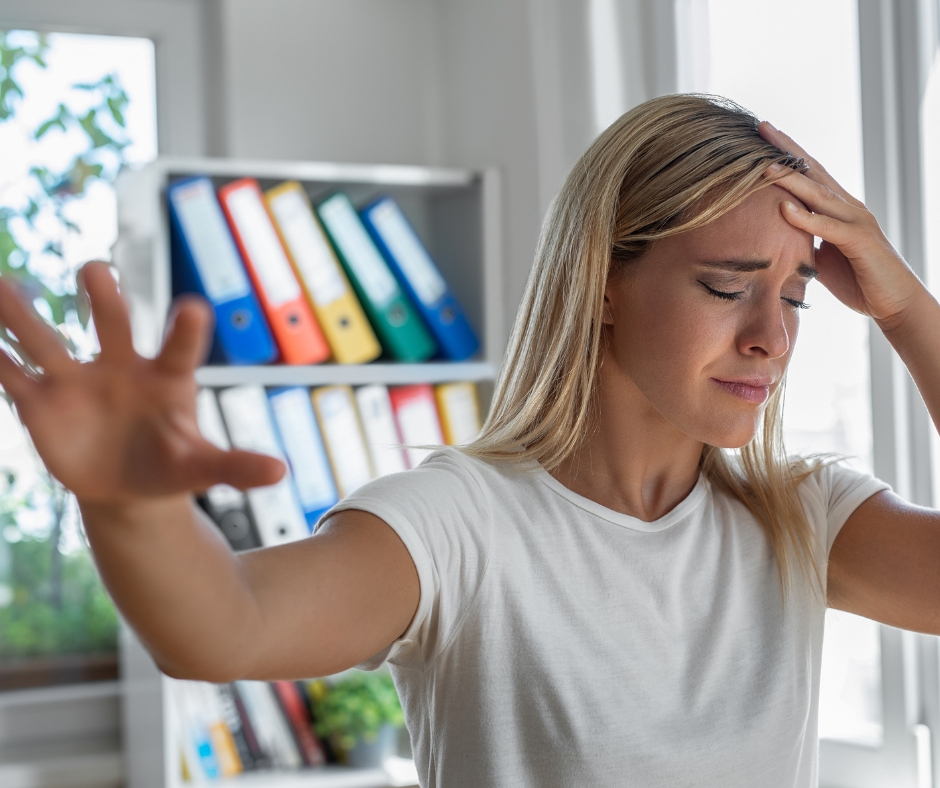24/7 online booking

Can Osteopathy Help with Dizziness? Understanding a Holistic Approach to Balance and Wellbeing
Dizziness is a common and often distressing symptom that can significantly impact daily life. Whether it manifests as a feeling of light-headedness, a sense of spinning (vertigo), or a general unsteadiness, dizziness can make even the simplest activities challenging. Many people seek medical advice for dizziness, but they might not realise that osteopathy can be an effective approach to managing this symptom. In this blog, we will explore how osteopathy can help with dizziness and support your overall wellbeing.
Understanding Dizziness
Dizziness is a broad term that can describe various sensations, including:
- Vertigo: A spinning sensation, either of yourself or your surroundings, often related to issues in the inner ear.
- Light-headedness: A feeling of faintness or being close to passing out.
- Disequilibrium: A sense of unsteadiness or imbalance, especially when walking.
There are many potential causes of dizziness, ranging from benign to serious. Common causes include:
- Vestibular disorders: Problems with the inner ear, such as benign paroxysmal positional vertigo (BPPV), vestibular neuritis, or Ménière’s disease, can lead to dizziness and balance issues.
- Cervicogenic dizziness: This type of dizziness is related to issues in the neck (cervical spine), where poor posture, muscle tension, or joint dysfunction can affect the balance centres.
- Circulatory issues: Conditions that affect blood flow to the brain, such as low blood pressure or heart problems, can cause dizziness.
- Anxiety and stress: Psychological factors can also contribute to dizziness, creating a cycle where the sensation of dizziness triggers more anxiety.
How Can Osteopathy Help with Dizziness?
Osteopathy is a manual therapy that focuses on treating the body as a whole, with particular attention to the musculoskeletal system. When it comes to dizziness, osteopaths take a holistic approach, addressing potential underlying causes and working to restore balance and normal function.
1. Addressing Cervical Spine Issues
One of the key ways osteopathy can help with dizziness is by addressing issues in the cervical spine. The neck plays a crucial role in balance, as it houses important nerves and blood vessels that contribute to our sense of orientation in space. If there is tension, misalignment, or dysfunction in the neck, it can lead to dizziness.
Osteopaths use gentle techniques to:
- Release muscle tension: Tight muscles in the neck can restrict blood flow and nerve function, contributing to dizziness. Soft tissue techniques can help relax these muscles and improve circulation.
- Improve joint mobility: Joint restrictions in the cervical spine can affect the way the head moves and contributes to dizziness. By mobilising these joints, osteopaths can help restore normal movement and reduce symptoms.
2. Supporting Vestibular Function
The vestibular system, located in the inner ear, is essential for balance and spatial orientation. Osteopaths can support vestibular function by addressing related musculoskeletal issues, particularly those in the head, neck, and upper back.
- Cranial osteopathy: This gentle technique focuses on the bones of the skull and the membranes surrounding the brain. By encouraging the subtle movement of these structures, cranial osteopathy can help improve fluid dynamics in the inner ear and reduce symptoms of dizziness.
- Postural correction: Poor posture, particularly in the head and neck, can exacerbate vestibular issues. Osteopaths can provide guidance on how to improve posture, which may help alleviate dizziness.
3. Improving Circulation
Circulatory issues, such as low blood pressure or reduced blood flow to the brain, can contribute to dizziness. Osteopathic techniques can help improve circulation throughout the body, including:
- Mobilising the thoracic spine: The thoracic spine (mid-back) plays a role in respiratory function. By improving mobility in this area, osteopaths can enhance breathing and oxygenation, which may help reduce dizziness.
- Encouraging lymphatic drainage: Poor lymphatic circulation can lead to fluid retention and pressure in the inner ear, contributing to dizziness. Osteopaths can use techniques to promote lymphatic drainage and reduce inner ear pressure.
4. Holistic Lifestyle Advice
Osteopaths not only provide hands-on treatment but also offer advice on lifestyle changes that can help manage dizziness. This might include:
- Stress management: Since anxiety and stress can exacerbate dizziness, osteopaths may recommend relaxation techniques, breathing exercises, or mindfulness practices to help calm the nervous system.
- Exercise and movement: Gentle exercises that improve balance and strengthen the neck muscles can be beneficial. Your osteopath can guide you in choosing safe and effective exercises that suit your condition.
- Dietary advice: In some cases, dizziness may be related to dietary factors, such as dehydration, low blood sugar, or food intolerances. Osteopaths can provide guidance on maintaining a balanced diet that supports overall health.
When to Consider Osteopathy for Dizziness
If you are experiencing dizziness, it is important to first consult with your GP to rule out any serious underlying conditions. Once these have been ruled out, osteopathy can be a valuable option for managing symptoms and improving your quality of life.
Osteopathic treatment is particularly beneficial for those whose dizziness is related to musculoskeletal issues, such as cervicogenic dizziness or vestibular dysfunction. However, even if the cause of your dizziness is not directly related to the musculoskeletal system, osteopathy’s holistic approach can still provide relief by improving overall balance and wellbeing.
Conclusion
Dizziness can be a challenging and often frightening symptom to live with, but osteopathy offers a gentle and holistic approach to finding relief. By addressing issues in the cervical spine, supporting vestibular function, and improving circulation, osteopathy can help reduce the frequency and severity of dizziness. Additionally, osteopaths provide valuable lifestyle advice to help you manage your symptoms and enhance your overall health.
If you are struggling with dizziness and are looking for a natural, hands-on approach to treatment, consider consulting a registered osteopath. Together, you can explore how osteopathy can support your journey to better balance, reduced dizziness, and improved quality of life.
If you would like to book and appointment with us, you can do so by clicking here.

Leave a comment